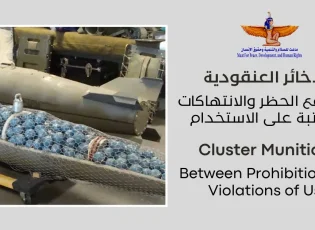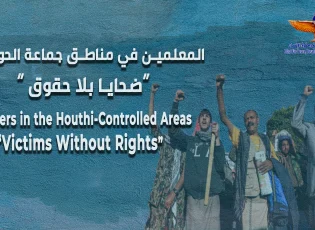Okeil: The Ethiopian government must stop constant repression and detention
Basha: We recommend the countries of the Horn of Africa to include the Mandela Standard Rules in their constitutions and legislation
In conjunction with the celebrations of the Nelson Mandela International Day that the world celebrates on July 18 annually, Maat for Peace, Development and Human Rights issues a study entitled “The Nelson Mandela Standard Rules: Between Lack of Resources & the Threat of COVID-19. A Case Study: Horn of Africa”, which analytically approaches the UN Standard Minimum Rules for the Treatment of Prisoners (SMRs), or what is known as the Nelson Mandela Rules. Those rules adopted by the General Assembly on December 25, 2015 in order to encourage states to improve the humanitarian conditions inside all prisons and detention centers in accordance with the principle of decent treatment inside and outside prisons. The Mandela Model Rules: Between Lack of Resources and the Threat of COVID-19, Case Study: Horn of Africa, addresses An analytical view of the United Nations Standard Rules for the Treatment of Prisoners, or what is known as the Nelson Mandela Rules; Those rules adopted by the General Assembly on December 25, 2015 in order to encourage states to improve the humanitarian conditions inside all prisons and detention centers in accordance with the principle of decent treatment inside and outside prisons.
The study touched on the crisis of humanitarian conditions in prisons and detention centers in light of the outbreak of the global health crisis of Covid-19 since the beginning of 2020, as many governments of countries, especially in eastern Africa, ignore the serious outbreak of the pandemic inside prisons and detention centers, especially in light of the deteriorating infrastructure of these facilities, which of course lack the most basic requirements for human health and dignity.
The study focuses In two main axes, the first; The international rules stipulated for dealing with prisoners, as for the second; It deals with those rules from an analytical point of view by applying to a number of East African countries and knowing the extent of their commitment to those rules, where the failures and positive developments in five major countries are; Somalia, Djibouti, South Sudan, Eritrea and Ethiopia.
Commenting on the study, Ayman Okeil, president of Maat for Peace, Development and Human Rights, emphasized that the principles of humanity are indivisible, and that respect for the right of the individual and his humanity must also be recognized behind bars. In the same context, Okeil expressed his deep concern about the political and security instability, triggered chiefly by ethnic wars that hit all parts of the country, as well as forced migrations among other security disturbances. Okeil, therefore, called on the Ethiopian government to immediately stop constant repression and arbitrary detention, especially in light of the deterioration of the prison and detention system, including problems of overcrowding and the spread of infections and diseases.
On his part, Abdelrahman Basha, deputy director of the African Affairs and Sustainable Development Unit at Maat, welcomed the positive efforts and developments achieved in a number of countries in the Horn of Africa regarding the application of the Mandela Standard Rules, and the attempt to follow precautionary measures to avoid the outbreak of the global pandemic. Basha also urged the governments of the countries of the Horn of Africa to continue these efforts and work to include international rules within the constitutions and legislation of countries.
Notably, Africa is among the issues of concern to Maat for Peace, Development and Human rights, being a member of the General Assembly for the Economic, Social & Cultural Council (ECOSOCC) of the Africa Union (AU). Moreover, Maat serves as an Observer in The African Commission on Human and People’s Rights (ACHPR) and as a Northern African Coordinator in the major Non-Governmental Organizations (NGOs) in Africa of the United Nations Department of Economic and Social Affairs (UN DESA).
![]()
 |
 |











